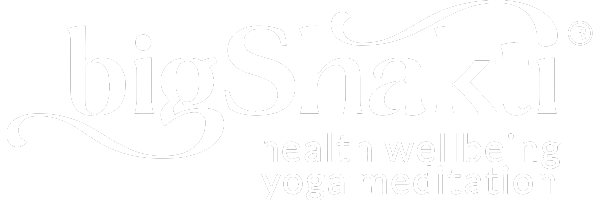Yoga of Mental Health Workshops → More Info
What is yoga?

Yoga is both a state of connection and a body of techniques that allow us to connect to anything. The experience of connection is a state of yoga, a joyful, blissful, fulfilling experience. Yoga techniques allow us to consciously connect with ourselves, to become more self-aware, and to connect with more of life, to feel, experience, and know more about the world we live in.
When we practice conscious connection, yoga, we can truly feel and experience the object we are meditating on, be it a person, thing, or experience.
It is important to understand that the term yoga encompasses a multitude of meanings, each revealing part of the ocean of knowledge and experience that forms the yogic path. Each reveals a facet of the vast body of knowledge and experience that is yoga. By studying and reflecting on them, we can come to our own understanding of yoga and our connection with the Higher Self.
Highest Philosophical Meaning
In its highest philosophical sense, yoga means the conscious connection of the limited, mortal, constantly changing egoic self with the unlimited, immortal, eternally unchanging, highest Self.
Connection facilitates balance and health and unfolds our dormant potential. This leads us to self-mastery and self-realization.
Yoga philosophy
Yoga is one of the six main philosophies (darshana) of India. This system of yoga is called the Raja Yoga of Patanjali. Raja yoga means the king of yogas. Patanjali is one of India’s great yogic masters, and his ‘Yoga Sutras’ have become the touchstone of classical yoga philosophy. He defines yoga as ‘the blocking (nirodha) of mental activity (chitta vritti) so that the seer, the unchanging witness, (drashta) re-identifies with the (highest) Self.
Yoga is a Science
Yoga is a science, a body of techniques that enables the connection between or the union of two opposite poles, such as individual and universal awareness or the body and the mind.
As yoga is a science, there is no dogma or belief system attached to it. Yoga simply tells us to do a certain practice and then to feel the effect of that practice. For example, if we breathe slowly in a relaxed manner, we will slow our heart rate; if we focus the mind, we will develop mental peace and deep insight.
Yoga is the Science of Awareness
Self-awareness is the key to yoga.
Yoga can be defined as any method that allows us to become more self-aware, to wake up to what we really are and to what life is all about; to find our own truth. Yoga allows us to be more aware of ourselves and feel connected. As such, yoga is a process of self-discovery.
It is essential to remember that everything we do can become yoga if it is done with awareness. You can make cooking a form of yoga, by consciously connecting to the act of making food. You can connect more to the food you eat by practicing mindfulness at the time of eating.
Awareness is the key to discovering the mysteries of who we truly are. Yoga reveals the luminous intelligence and beauty that lie within us.
Branches of Yoga
Apart from Raja Yoga, there are many systems and forms of yoga that all aim for and enable union or connection with something great in us. These paths include:
- Tantra yoga is the yoga of liberation of energy to awaken consciousness
- Hatha Yoga teaches posture (asana), breathing (pranayama), control of subtle forces (mudra and bandha), cleansing the body-mind (shatkarma), and meditation.
- Mantra yoga is the yoga of primal sounds used to liberate energy and awaken consciousness
- Laya yoga is the yoga of dissolution
- Kundalini yoga is the yoga of awakening the primary cosmic energy within the human body-mind complex.
- Bhakti yoga is the yoga of devotion to something greater than the little self.
- Jnana (gyāna) yoga, the yoga of Self-inquiry - asks the question, “Who am I?”
- Karma yoga is the yoga of action.
Yoga encompasses all the practices, philosophies, and lifestyles that enable us to achieve peace, power, and spiritual wisdom, as well as perfect health, a sound mind, and a balanced personality.
Hatha Yoga
The definition of yoga in the Hatha Yoga texts is the union of the upward force (prana) and the downward force (apana) at the navel center (manipura chakra).
Hatha yoga teaches us to master the totality of our life force, called prana. By learning how to feel and manipulate the life force, we access the source of our being.
Kundalini Yoga
The definition of yoga in kundalini yoga is the union of the mental current (ida) and the pranic current (pingala) in the third eye (ajna chakra) or at the base chakra (muladhara chakra). This unifies duality in us by connecting body and mind and leads to the awakening of spiritual consciousness.
No single definition
There is no single definition of yoga. In order to experience truth through yoga, we must study its classical definitions and reflect on our own understanding of it.
My opinion
In my opinion, one of the best definitions of yoga is any system that cultivates self-awareness. It is any method that enables us to wake up to who or what we really are, to our true essence, and to the essence of life.
Anything that allows us to be more aware of ourselves and to feel connected to ourselves and life is a form of yoga. For me, yoga is more than just a concept. It's a personal journey of self-discovery and connection. I believe that any practice that enhances our self-awareness and fosters a deeper connection with ourselves and the world around us is a form of yoga.
Categories
- Yoga Therapy (59)
- Meditation (33)
- Yoga Psychology (41)
- Consciousness (31)
- Everyday Wisdom (34)
- Yoga Nidra (14)
- Relaxation (26)
- Spirituality (26)
- Wisdom (6)
- Meditation Techniques (42)
- Prana - The subtle breath (16)
- Yoga Philosophy (27)
- Chakras (28)
- Yoga (15)
- Diseases (10)
- Yoga Meditation Research (5)
- Ayurveda (4)
- Third Eye - Ajna Chakra (7)
- Podcast (23)
- Articles by Jayne Stevenson (17)
- Articles by Swami Shankardev (25)
- Life Purpose (8)
- Yoga Tantra (20)
- Shadow Self (10)
- Symbols (3)
- Carl Jung (6)
- Mantras (19)
- e-mag (16)
- Mental Wellness (47)
- Stress Management (12)
- Emotion (3)
- Self-Awareness (1)
- Self-Regulation (2)
- Healing (3)
2025 Yoga of Mental Health Workshops
- Sāṁkhya Philosophy & Mental Health: A Yogic Path to Holistic Well-being
- Uncovering the Roots of Mental Illness: Insights from the Gita & Patanjali
- Restoring Self-Regulation: Yogic Techniques for Emotional Resilience & Inner Strength
- Mantra Therapy: Transforming Thought Patterns for Emotional Healing & Mental Wellbeing






